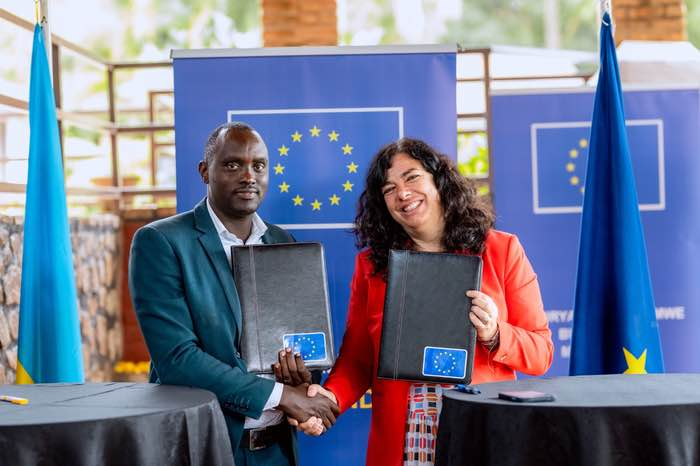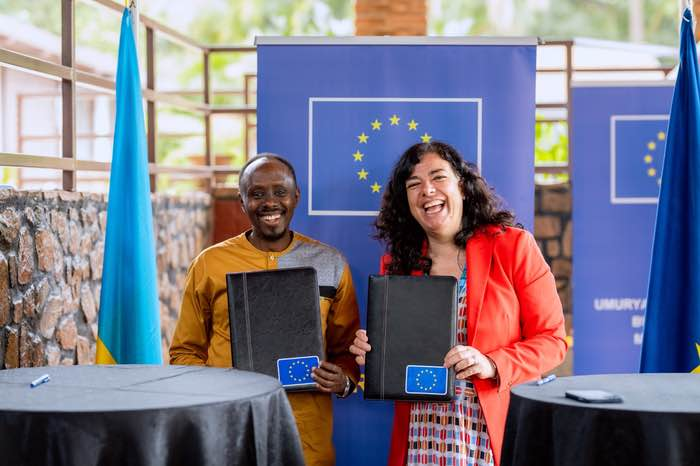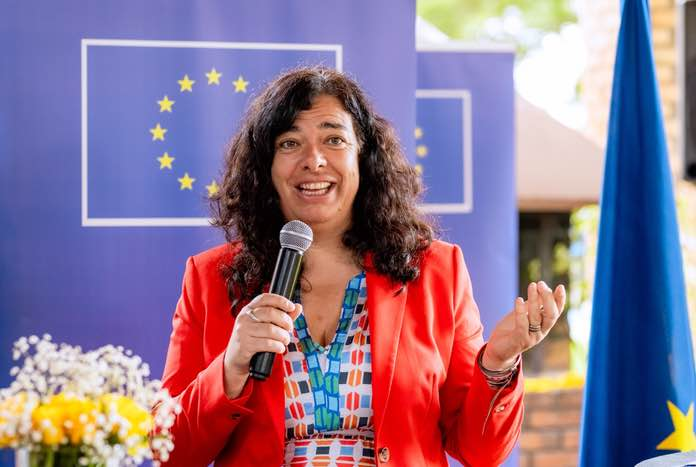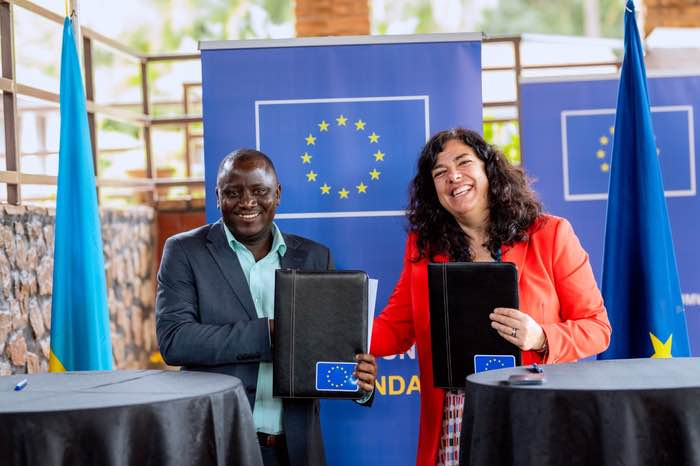
The European Union has launched thirteen new projects worth 4.6 million Euros (approximately 5.9B Rwandan Francs) in partnership with civil society organizations.
The projects will focus on disabilities, accountability, labor, and media rights in Rwanda.
Nine of these projects will support children and youth living with disabilities with a special focus on improving the lives of children with intellectual disabilities. Another key initiative promotes budget accountability, by supporting the participation of youth-led organizations in public finance management policies in Rwanda.

Two projects are dedicated to enhancing digital media, by specifically enhancing digital media and information literacy among citizens. They will reinforce the capabilities of media practitioners and content creators in the responsible use of digital media, aligning with the evolving landscape of communication.
In the mining sector, one project will focus on improving the human, labor and environmental rights of workers in the Rwandan mining sector and local communities.
Speaking at the signing ceremony held in Kigali, the European Union Ambassador Belen Calvo Uyarra expressed the EU’s commitment to support local vibrant civil society in a meaningful and structured way in key decisions and policies in Rwanda.

European Union Ambassador Belen Calvo Uyarra
“With the robust expertise of the implementing partners, we believe these new projects will positively impact the lives of children and youth living with disabilities, as well as improve the welfare of those working in the mining sector,” she noted.
With these initiatives, the EU aims to improve the lives of children with intellectual disabilities, empower women and girls with disabilities in accessing health services, integrate youth with disabilities into employment programs, strengthen families with children with disabilities and improve access to quality education.
Allan Christopher, the Program Officer, the Danish Trade Union Development Agency, a regional nongovernmental organization that supports trade unions in East Africa told members of the press that the majority of the miners do not have contracts of employment citing the unfavorable model of payment emphasizing that the project is timely and will impact the lives of the beneficiaries during its implementations.
Citing the UN’s decent work agenda programs, Christopher allayed fears that the new project will improve the work environment of employers especially those working in the mining sector.
He, however, said only partnership and collaboration can bring a lasting solution.

“The problem can be solved by the collaborative effort between the government and employees and employers.
We will work with the mining syndicates to implement the European Union projects. We want to inculcate decent working condition policy and make sure that we oblige workers to wear helmets,” he added.
The initiatives reflect the EU’s commitment to fostering inclusive governance and human rights in partnership with Rwanda.
